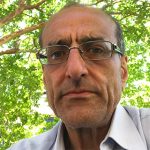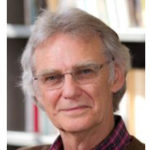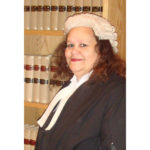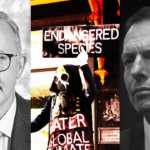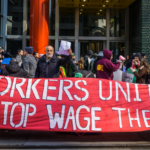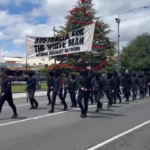Human Rights Watch: An Exclusive Interview with Elaine Pearson
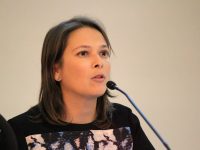
Director of Human Rights Watch Australia, Elaine Pearson, is frank in her assessment of our human rights situation: “I think the sad reality is that we’re no longer a leader on human rights, although I think in certain times we have been a leader in the region.”
She should know. Ms Pearson spent nearly 15 years working in human rights organisations across Asia, Europe and the USA. Two and a half years ago, she was offered the job to start Human Rights Watch’s Australian office: “I jumped at the opportunity… there are few organisations in Australia with an international focus, and so it was a very important time to be a part of that.”
Since then, the organisation has been involved in several important campaigns: including reporting on Manus Island and Nauru human rights abuses; and successfully campaigning for an inquiry into Australia’s international position on the death penalty.
Ms Pearson sat down with Sydney Criminal Lawyers® earlier this week to discuss the important work of Human Rights Watch in Australia.
Could you begin by telling us a little about the history of Human Rights Watch in Australia?
We set up the office here two and a-half years ago. In the last 10 years or so, Human Rights Watch has really sought to internationalise, and that’s been in recognition that globally the balance of power has been shifting away from the US and Europe. There are now other countries like China, India and Russia that are becoming more significant, and so as an organisation we also really wanted to make sure that we internationalise as well.
Australia is an important regional player, in terms of trade and security relationships. Though, in terms of human rights, it’s been a bit inconsistent. Sometimes it’s been a very forceful defender of human rights, but less so in more recent times. We felt we could really amplify the work we’re doing in the region by actually having a presence here on the ground, and reaching out to the Australian public and policy makers and informing them about specific investigations that we’re doing. The countries that we primarily focus on here are China, Indonesia, Burma, Sri Lanka, and Papua New Guinea.
Australia already has quite a strong civil society, but there are fewer organisations here that are really looking at what other countries are doing in terms of its international relations. However our launch also coincided with the reintroduction of offshore processing, that’s become a huge area of our work because the treatment of refugees and asylum seekers is very much influencing our foreign policy.
And since setting up, what issues have you been working on?
As an organisation, our role is to investigate human rights abuses wherever they occur and to expose those abuses through our reporting. In terms of the work we do in Australia, it’s partially been about bringing reports on countries in the region to Australian policy makers, but it’s also been about applying that methodology on a few critical issues in Australia.
In terms of the issues we take up here, it tends to be ones where Australia plays some kind of international role: refugees and asylum seekers, counter terrorism, and we’re actually about to start a new project on disability rights. That will actually be the first project that this office has done focussing on something that’s purely domestic.
We think that our role is to shine a spotlight on groups that are marginalised, and don’t have a voice. We hope we can get governments to adopt better policies to protect these people, by highlighting specific patterns of abuses, and systematic violations of human rights.
The death penalty has also been a big focus of our work, in the wake of the executions of two Australians in Indonesia last year. Australia can’t just speak up belatedly when its own citizens lives are at stake, it’s important that DFAT has a principled and consistent position wherever the death penalty is being applied. We worked closely with Amnesty, the Human Rights Law Centre and other groups to establish a parliamentary inquiry into Australia’s advocacy of the death penalty globally, and we hope it will lead to a new policy.
You said there’s been a recent shift in human rights in Australia, what did you mean by that?
It happened 10 years ago with the Tampa, and politics starting to be driven by fear: fear of migrants, fear of not being able to control borders, and fear of terrorism. I think we’re now seeing this play out also in Europe, but the way in which Australia has dealt with it has been quite different.
Because Australia is an island, there is an ability to patrol the borders, and because Australia is a wealthy country, there’s also been an ability also to bribe other countries to take people that we don’t want. Unfortunately, the end result of those policies has been a severe violation of human rights. Those people have been treated in inhumane ways, locked up for years on end in detention, and left to languish in an indefinite limbo.
There’s a number of other serious human rights challenges that concern us, such as the discrimination faced by the Indigenous community. But one our biggest concerns is that Australia is no longer one of the countries that’s speaking up critically, and really trying to encourage other countries to protect human rights principles.
How do you think those changes have affected the world’s perception of Australia?
Australia’s credibility on a global stage has been somewhat undermined by our own policies on refugees and asylum seekers. Rather than being a leader, we’re seen as a country with a lot of catching up to do.
Australia is also one of the last few remaining Western countries not to adopt same-sex marriage, and so is seen as this sort of outsider on those issues.
In terms of Indigenous issues, there are a lot of similar issues around discrimination in the US and Canada, but these problems have been brought up to the Government’s attention at various times through royal commissions and various investigations, and we haven’t seen any progress.
It sounds like you’ve done a lot in the last two and a-half years, what do you have planned for the future?
We will continue to have our focus on issues in the region and to look for opportunities where we can make a difference, but we want to do more work on domestic issues too.
One other initiative that we have planned is to get Australia to adopt the Safe Schools Declaration on ending the military occupations of schools. Since the declaration opened for signature, in May last year, 52 countries have signed and Australia’s not one of them. When you’ve got governments like Nigeria and Afghanistan that are actually facing these problems on the ground, that have signed this declaration, I think it sends entirely the wrong signal that Australia hasn’t.
I mentioned before that we plan to start working with people with disabilities in the criminal justice system, and investigate how they’re actually being treated, their overrepresentation, and what sort of problems they face. That will be in a similar vein to reporting we’ve done in the United States and France, and we’ll be bringing that researcher out from another country to do that work in Australia.
Thank you for your time.
Later this month, Human Rights Watch Australia will be hosting their annual Voices for Justice Dinners in Melbourne and Sydney. For more information please contact Human Rights Watch Australia at +61 2 9221 9422 or australia@hrw.org.

